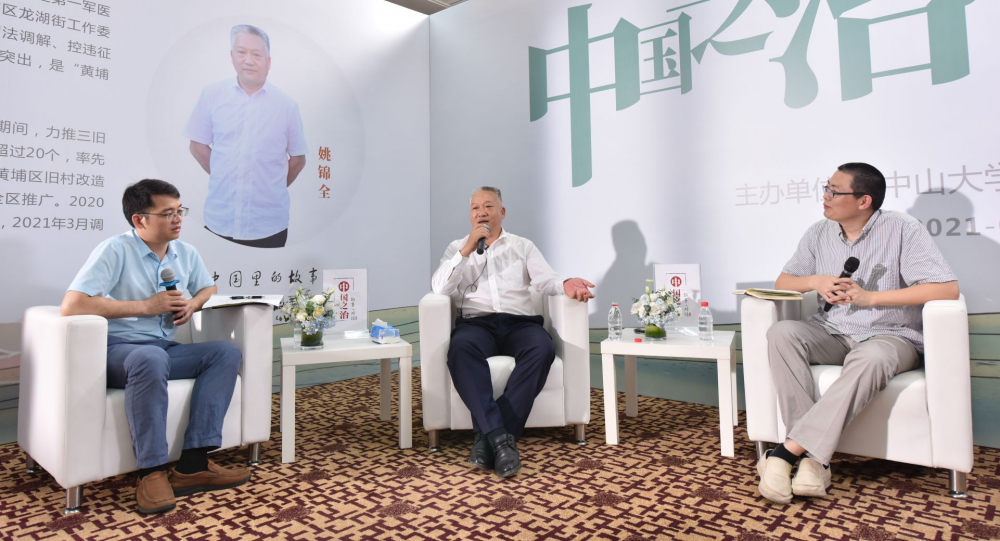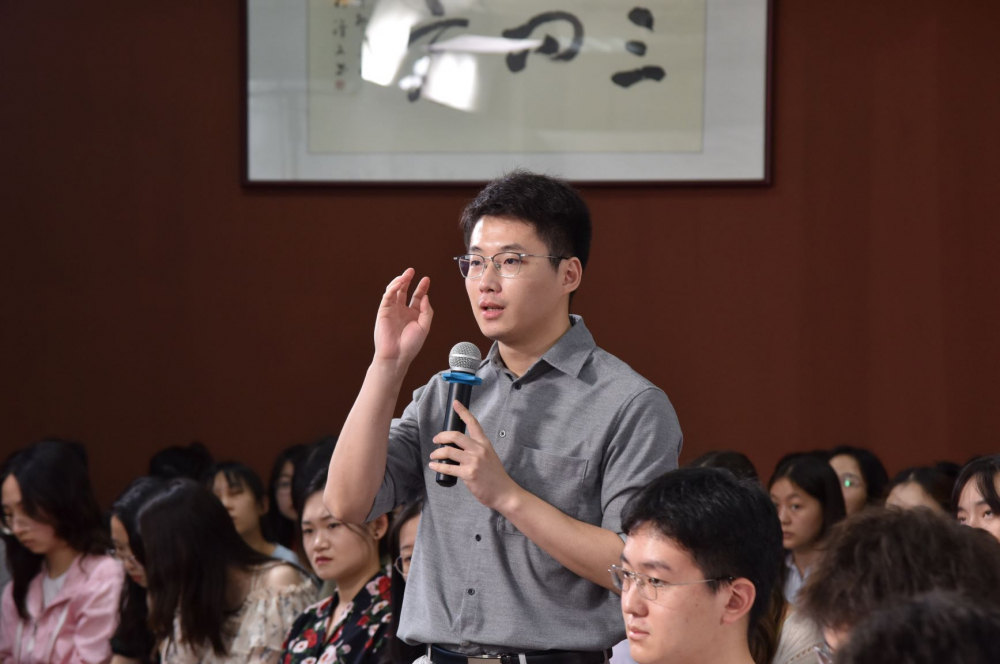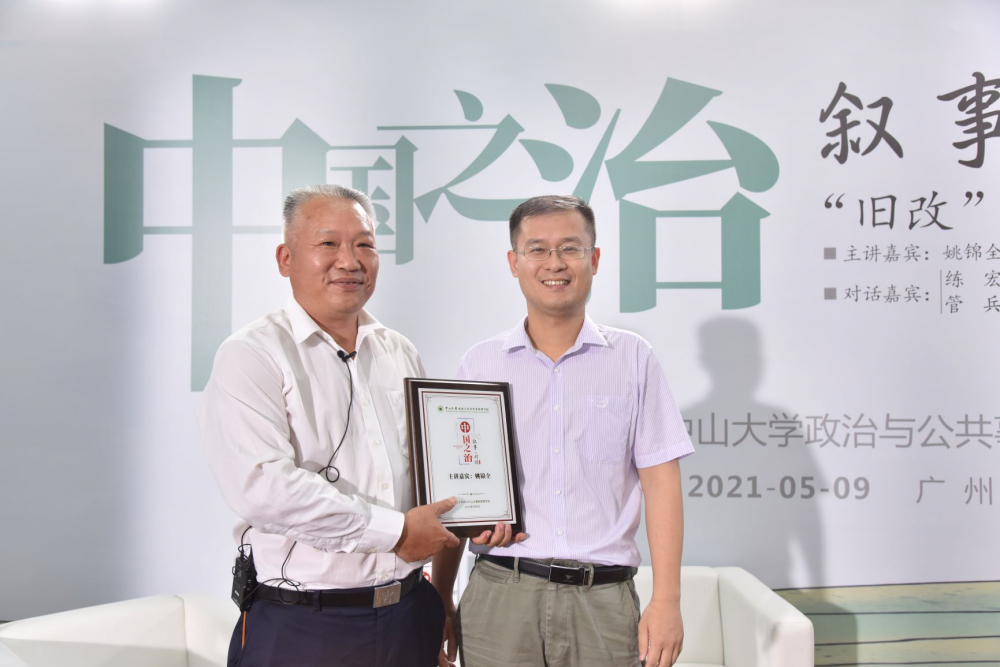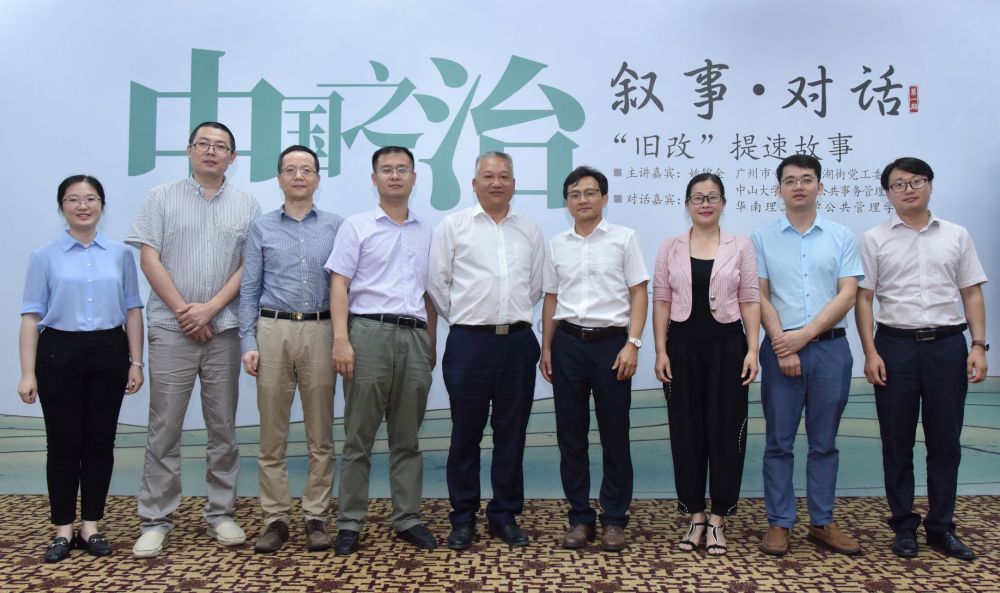Collaborative Education || The First Session of “Chinese Governance: Narration-Dialogue” Activity Successfully Held
Corresponding to its foundational goal of “Promoting Global Governance through Chinese Governance Based on Shared Benefits”, the School of Government in Sun Yat-sen University has long been committed to cultivating high-quality talent with functional motivation and theoretical innovation for the modernization of China’s governance system and capabilities of governance. On the 20th anniversary of the founding of the school, a plan was made to carry out an activity named the “Chinese Governance: Narration-Dialogue”, which aimed to deepen the understanding of “Chinese governance” among our faculty and students and give inspiration for theoretical innovation by means of sharing marvelous stories of front-line leaders of governance and active on-site interaction and dialogue.
The initial session of the “Chinese Governance: Narration-Dialogue” activity was successfully held in D113 of the university’s teaching building on May 9, 2021, where the keynote speaker was Yao Jinquan, Secretary of the Party Working Committee of Longhu street, Huangpu district, Guangzhou and the dialogue speakers were Mr. Lian Hong from the School of Government in Sun Yat-sen University and Mr. Guan Bing from the School of Public Administration in the South China University of Technology. Speakers of the two sides exchanged views on stories that concerned increasing the speed of the “renovation of old residential communities”. The activity was crowded with guests including Dean Tan Ankui, Secretary Liu Zeyang, Deputy Dean Ye Lin, Deputy Secretary Tan Yingyao, Teacher Zhu Yapeng, Teacher Wang Qing, Teacher Zhen Yueping, numerous representatives attached to authoritative media outlets, and students both inside and outside the school, and was hosted by Teacher Lian Hong.
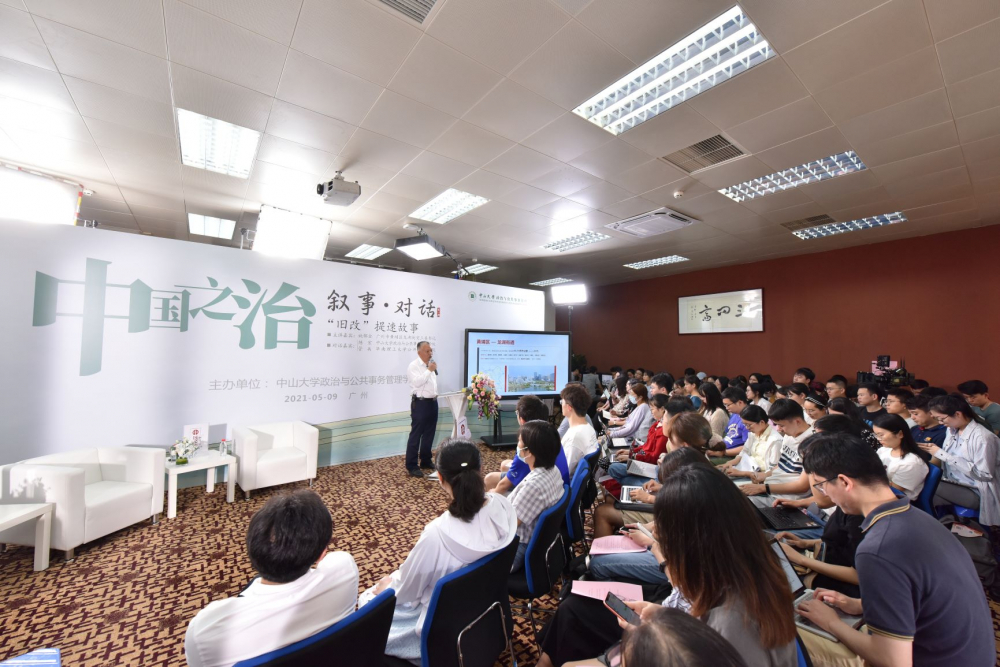
Dean Tan Ankui gave an opening speech at the commencement of the activity. He stated the purpose of promoting the “Chinese Governance: Narration-Dialogue” activity was to alleviate the anxiety about the production of knowledge and talent cultivation within national governance. On one hand, based upon the practices and wisdom of “Chinese governance” and through positive interaction between theories and practices of governance, the activity could help to seek new knowledge and new theories which effectively explain the “miracle” of China’s rapid economic growth, long-term social stability, and explore the room for their universalization. On the other hand, as an attempt of education through government, industry, university and research collaboration, this activity had hoped to give students an experience of the complexity of leadership, public spirit, and public affairs in the real world and additionally, help them to improve the motivation for theoretical inquiry through the sharing of real stories of governance. This was done so as to achieve the goal of participating in politics while pursuing morality and studies. Dean Tan also pointed out, as the orientation of this activity was “narration and dialogue”, it was hoped that leaders on the front-lines of governance could not only share the success and wisdom of their practices, but also the failures and disappointments, so as to make the story richer and more inspirational. Furthermore, it was hoped that the teachers and students could actively interact with the speakers, that is, “listening to the speakers’ stories in China while jointly analyzing China in the stories”.
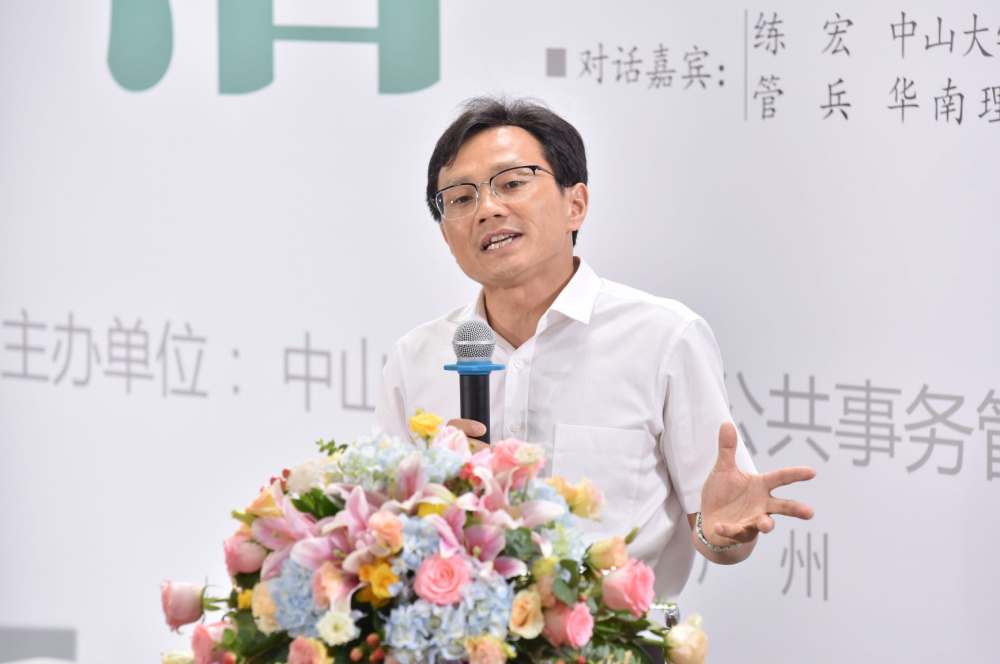
Subsequently, the guests started to make their speeches. Secretary Yao Jinquan explained the specific meaning of the “renovation of old residential communities” (namely the “renovation of basic support facilities, infrastructure for improvement, and public services”), and introduced the entire conceptual process of emergence and development. From his personal experience concerning “renovation of old residential communities” after being transferred to civilian work and using the governance experience gained in Luogang, Huangpu and other districts, Secretary Yao elaborated upon the causes of social problems and corresponding measures for even-handedness in the process of “renovating old residential communities”, and explained the role and function of actors, such as developers, in this process. He emphasized that the “renovation of old residential communities” was a process of gradual improvement of relevant laws and regulations, requiring governors to focus on both the efficiency and fairness of renovation. What this means is that this process must take into account the limited scope stipulated in the plan and adopt different methods in different circumstances on the basis of people’s benefits, so as to take hold of the real problems and the bottom line of the law. Containing a large number of rich examples, Secretary Yao’s speech demonstrated a more vivid, comprehensive and systematic process of “renovating old residential communities” to the teachers and students.
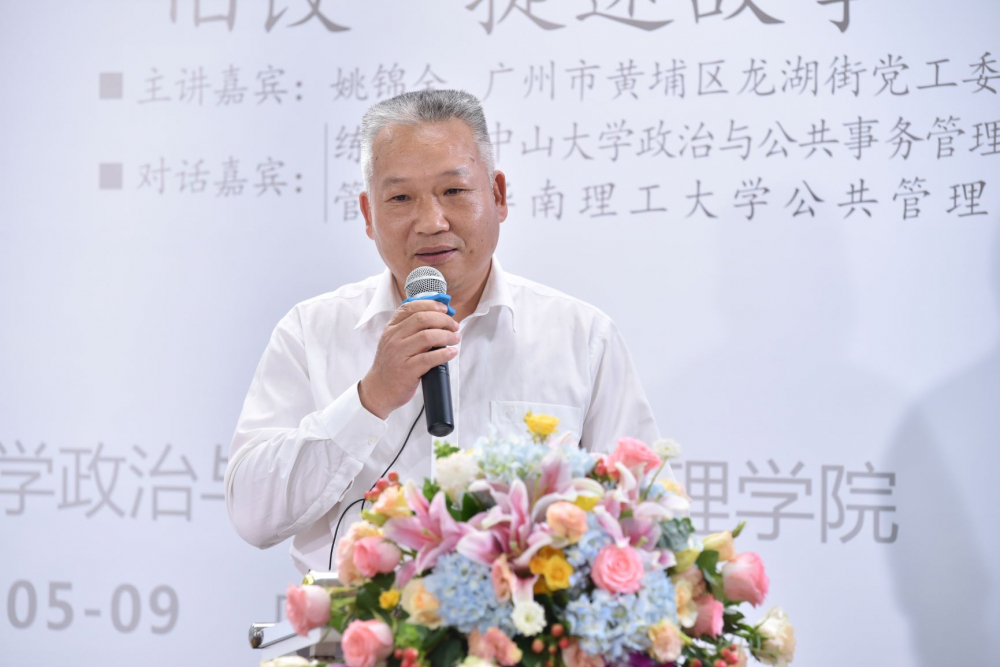
By participating in this activity, the majority of teachers and students have realized the balance needed between “innovation” and “inheritance” within grassroots governance and learned how grassroots governors planned and promoted efficient governance from the stories and dialogue. This greatly helped deepen our actualized pursuit of talent cultivation in order to achieve further development within the process of “participating in politics while pursuing morality and studies”.
